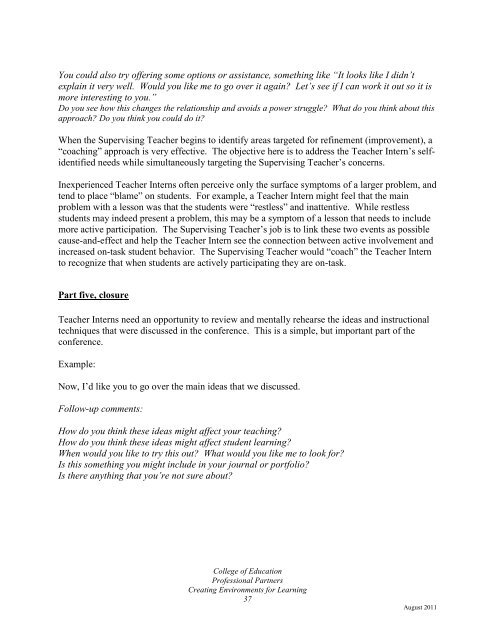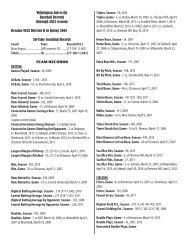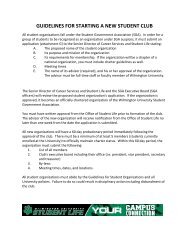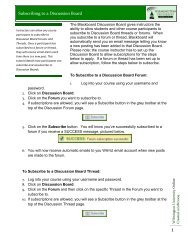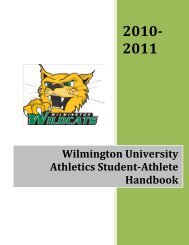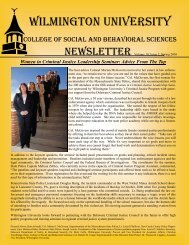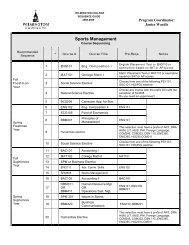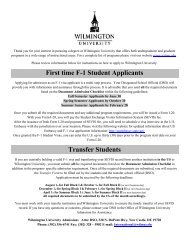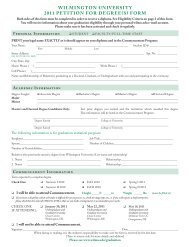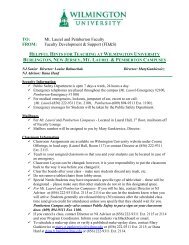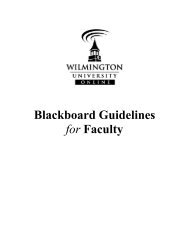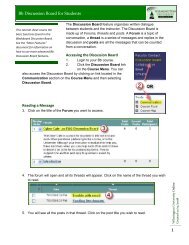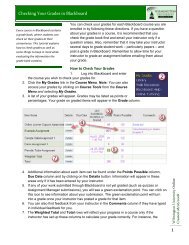handbook for cooperating teachers - Wilmington University
handbook for cooperating teachers - Wilmington University
handbook for cooperating teachers - Wilmington University
You also want an ePaper? Increase the reach of your titles
YUMPU automatically turns print PDFs into web optimized ePapers that Google loves.
You could also try offering some options or assistance, something like “It looks like I didn‟texplain it very well. Would you like me to go over it again? Let‟s see if I can work it out so it ismore interesting to you.”Do you see how this changes the relationship and avoids a power struggle? What do you think about thisapproach? Do you think you could do it?When the Supervising Teacher begins to identify areas targeted <strong>for</strong> refinement (improvement), a“coaching” approach is very effective. The objective here is to address the Teacher Intern’s selfidentifiedneeds while simultaneously targeting the Supervising Teacher’s concerns.Inexperienced Teacher Interns often perceive only the surface symptoms of a larger problem, andtend to place “blame” on students. For example, a Teacher Intern might feel that the mainproblem with a lesson was that the students were “restless” and inattentive. While restlessstudents may indeed present a problem, this may be a symptom of a lesson that needs to includemore active participation. The Supervising Teacher’s job is to link these two events as possiblecause-and-effect and help the Teacher Intern see the connection between active involvement andincreased on-task student behavior. The Supervising Teacher would “coach” the Teacher Internto recognize that when students are actively participating they are on-task.Part five, closureTeacher Interns need an opportunity to review and mentally rehearse the ideas and instructionaltechniques that were discussed in the conference. This is a simple, but important part of theconference.Example:Now, I’d like you to go over the main ideas that we discussed.Follow-up comments:How do you think these ideas might affect your teaching?How do you think these ideas might affect student learning?When would you like to try this out? What would you like me to look <strong>for</strong>?Is this something you might include in your journal or portfolio?Is there anything that you‟re not sure about?College of EducationProfessional PartnersCreating Environments <strong>for</strong> Learning37August 2011


